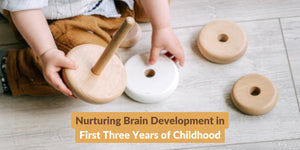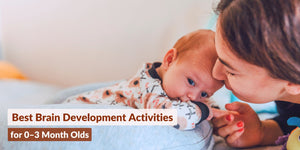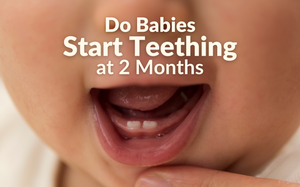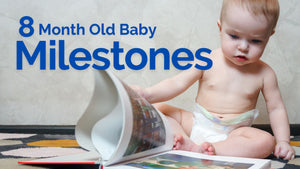It is exciting to see your baby’s activities undergo a transition from stretching and kicking to rolling over and lifting the chest off the floor. In the final months before the first birthday, you will notice that the little one is in constant motion. He/she may kick throughout the diaper change, grab his/her feet, and try to put the toes in the mouth.
It is true that the little one cannot run across the park or throw a ball yet, but you can create many opportunities for your baby to develop their motor skills. Let us discuss how you can encourage your baby to stay active.
What are the benefits of physical activity for kids?
Being active every day sets children up to be healthy and active throughout their lives. Children in the age group of one to five years typically need three hours of physical activity a day. Here are some benefits of physical activity for kids:- Develop healthy bones, muscles, and joints.
- Develop a healthy heart and lungs.
- Improve muscle strength and coordination.
- Improvement in flexibility, balance, and posture.
- Maintain a healthy weight.
- Improve memory, concentration, and thinking skills.
- Reduce the chances of chronic diseases (such as diabetes and heart disease) in adult life.
How can I encourage physical activity in my little one?
Simply put, BabyG activities are designed with a physical activity guide to encourage healthy physiological development in your baby, so continue to carry out activities every week.Here are a few more tips with a physical activity guide for you to encourage your baby to play and stay active:
- As you play with your baby, teach the little one to clap. Clapping requires muscle control and hand-eye coordination.
- Encourage them to reach for, push, and pull toys. It improves coordination.
- Give them ‘tummy time.' It strengthens the muscles needed for sitting and crawling. You may begin with a shorter tummy time from birth and gradually increase the duration. Always remember to place your baby on your tummy only when he or she is awake.
- Introduce a variety of activities that your child enjoys.
- Join in your baby’s active play and involve the whole family.
- While they are small, lay them on the back so they can kick freely. Once they begin crawling, create a safe space and let them crawl. Take them swimming or play outdoors.
- As they learn to walk, encourage walking instead of using a buggy. Take them to a park to run around, climb or play on a swing. Encourage them to sing songs with actions or dance to music.
- Play games that improve their senses and motor skills such as –
- Catching objects before they fall.
- Making sound patterns by clapping or using bells.
- Feeling different textures such as grass, carpet, paint, or playdough.
Are there any activities that my baby should avoid?
It is necessary to avoid certain activities, such as:- Do not allow your baby to spend more than 20 minutes a day in a walker or bouncer, as this may cause a delay in walking.
- Avoid prolonged use of reclining baby seats or carriers. They can delay the baby’s ability to sit up by himself/herself.
- Limit screen time such as watching television, electronic games, etc., especially in children older than two years of age.
If my physically active kids become lethargic, should I visit the paediatrician?
It is normal for your child to show an occasional deviation from their regular behaviour. However, sometimes your baby may become sluggish and sleep for longer than usual. This change in activity may point towards an infection, drop in blood sugar levels, or other medical conditions. It is better to seek your paediatrician’s advice in such instances.
I think my baby is overactive. Can it be ADHD?
Attention deficit hyperactivity disorder (ADHD) is seen in toddlers, and according to a study, 13% of children between the age of 14 and 29 months showed features suggestive of ADHD. At times, your baby may seem relentlessly overactive. You may suspect that your baby has ADHD. However, chances are your baby is just normal, healthy, and energetic. If the overactivity worries you a lot, you may discuss it with your paediatrician.Encourage a mix of cardio activities (like jumping and running) and motor skill activities (like hopping or balancing) as they activate the child’s brain differently and improve overall brain function. Encourage your baby to be active with relevant physical activities for kids for the healthy development of their body and brain. If you notice any problems, feel free to talk to your paediatrician.













LEAVE A COMMENT